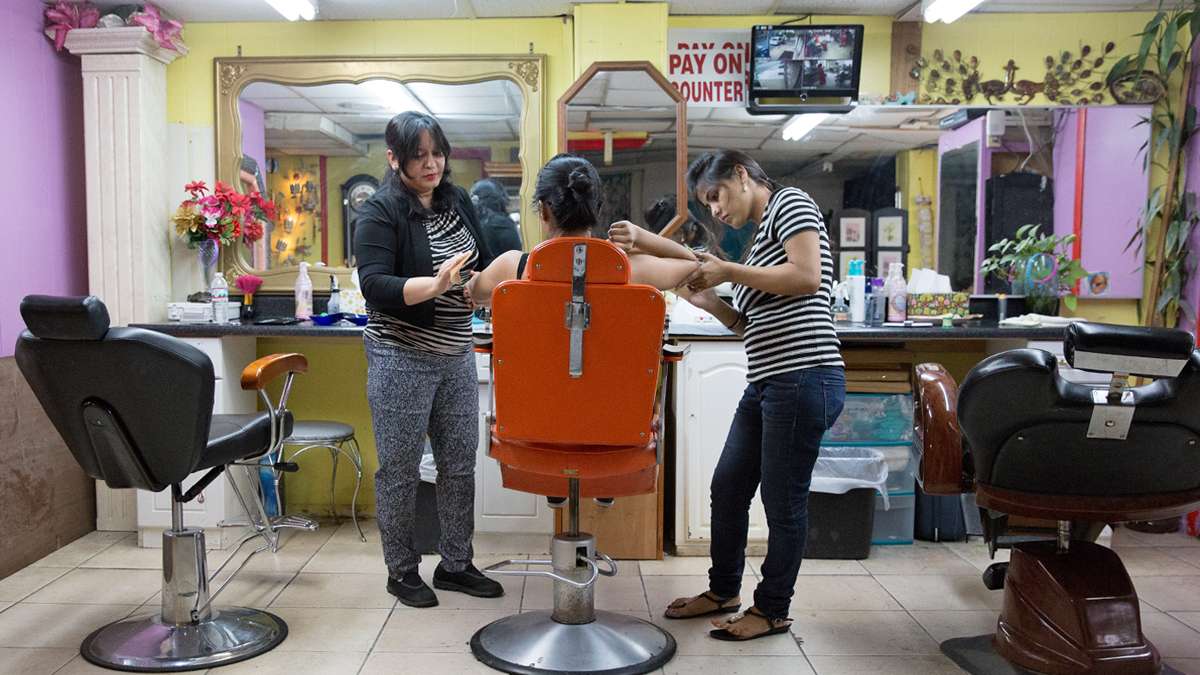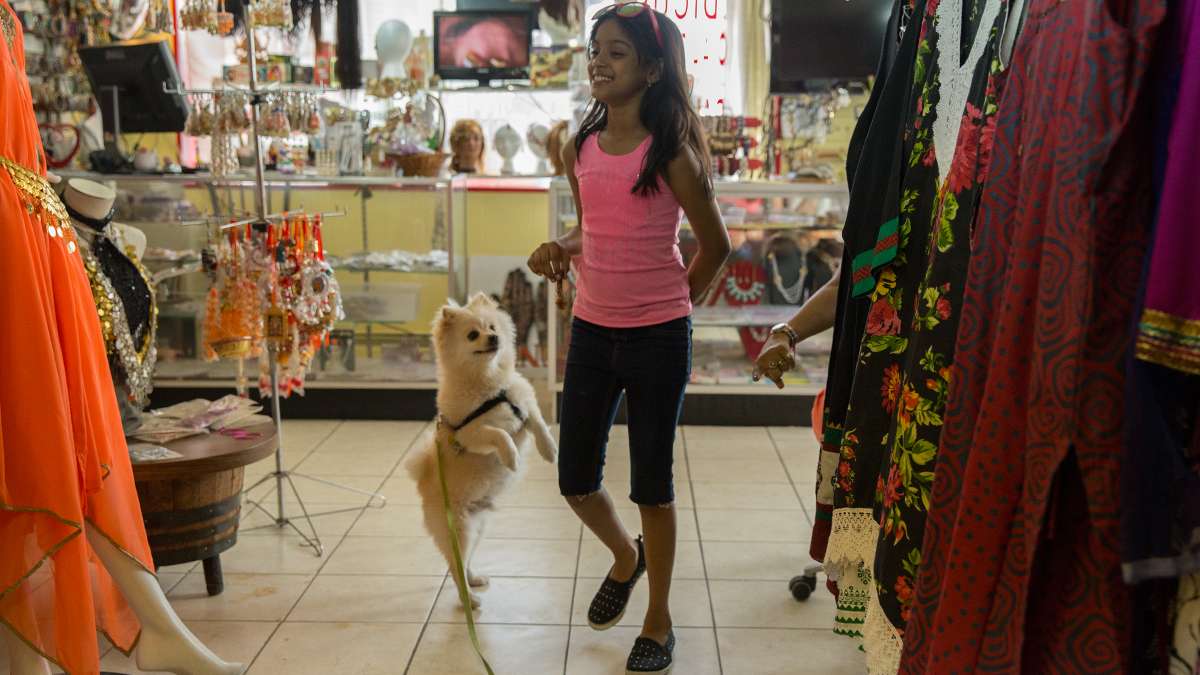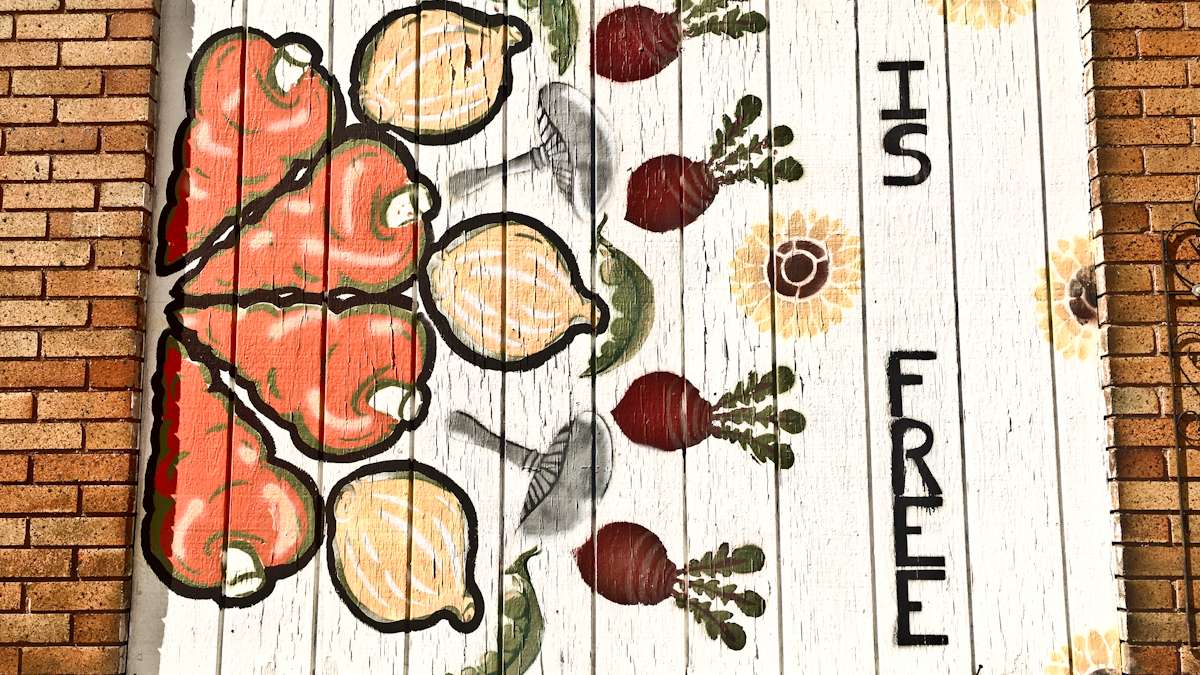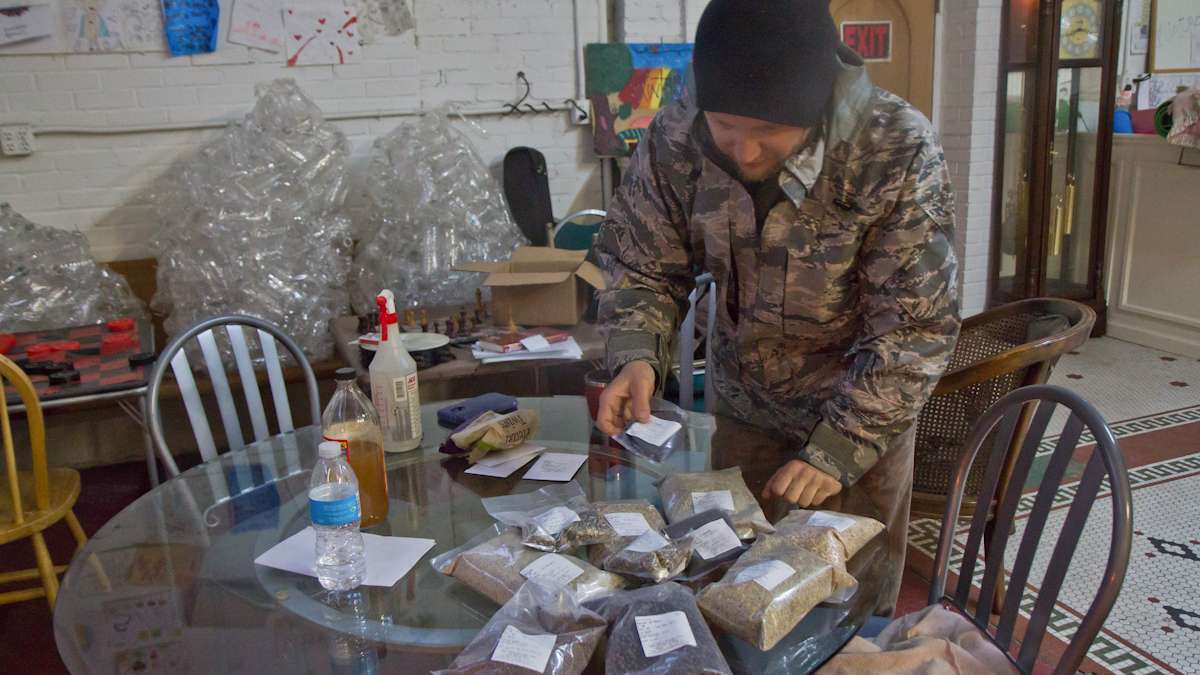Healing the food system one goat walk at a time
My buddy E.J. has spent the last few years traveling the country working at farms and learning all he can about organic farming. His dream is to turn Flint, Michigan, into a “food forest,” empowering and feeding the city’s people.
“Food is free.” At least that’s what it says in a mural painted on the outside of Flintopia, a community center in Flint, Michigan. In 2013 my buddy E.J. Spielmaker and his dad founded the organization, which promotes sustainable living and hosts dinners, game nights, and yoga. Brown boxes overflow with fresh produce available to anyone who needs it. The fridge is stocked with bottled water. In the surrounding neighborhood known as the Eastside, my buddy has planted an orchard and several gardens.
I met E.J. in Philadelphia the night before his honorable discharge from the U.S. Air Force. He earned the rank of staff sergeant and spent much of his service constructing airfields in Iraq and Honduras. In 2011 he was stationed at McGuire Air Force Base in New Jersey and would come into Philly to meet women long before he had any interest in permaculture farming.
The principles of permaculture are easily googled, but here’s what it looks like to me: growth of a diversity of edible native plants; small herds of goats or sheep, or flocks of chickens; a greenhouse — you know, going to the walnut tree instead of the Acme. In my buddy’s mind, there is free food in every vacant lot in any urban area.
Save for a small downtown area that’s thriving, Flint is an industrial graveyard. E.J. has spent the last few years traveling the country working at farms and learning all he can about organic farming. His dream is to turn Flint into a “food forest,” empowering and feeding the city’s people.
About once a year since I met E.J., I’ve traveled to meet him in Flint, in Iowa, in Montreal, and it’s always worth the expense. In exchange I’m given the hope that, in my lifetime, I’ll see food growing in every vacant lot — that no one will ever go hungry again.
Goats and gooseberries
Is June, and we’re eating raspberries straight from the bush at Laughing Dog Farm in Gill, Massachusetts. I’m picking and stuffing the fruit into my mouth, and within a minute I’ve eaten about a pint, or $3.99 worth of berries at the IGA in Fishtown.
“These berries are so nutritious, you can’t even charge what their worth,” E.J. says. He goes on and on about the abundance. He’s been lauding Laughing Dog for a year, holding it up as an ideal example of permaculture.
Gooseberries, three kinds of beans, kale, melons, paw paws, heirloom tomatoes, and squash are just a few of the items 20-year owners Daniel Botkin and Divya Shinn are growing. Before their stewardship, the land was part of a famous commune. Dan rises early and often works late into the night. His farming philosophy is based upon the permaculture principles, to utilize the land ecologically and organically. His aim is to regenerate and heal the soil, not extract and exploit from it.
“I love farming because it ties directly into the spiritual and emotional needs of people as well as feeding their stomachs,” he tells me.
I’ve eaten beyond my means in berries, probably about $15 worth, when Dan comes over with a plate of bread baked by Divya, pears, and goat cheese. The cheese is so creamy, I hold it in my mouth and let it dissolve on my tongue. It’s time for a goat walk.
Gandhari, Beebee, Jai, Jattakarma, Java, Janis, Jasmine, Jebediah, Bernadette, and Juniper are the current members of the herd Dan has been raising for 19 years. “Goats are phenomenal animals — smart, hardy, funny, and so useful for milk, cheese, manure, and browsing walks,” he tells me. “Plus the breeding season is precious.”
Farming is a social and community healing vocation to Dan. “I see permaculture-based farming as the last best chance to heal the planet and ourselves,” he says.
As we approach, the goats line up. Dan explains that he’s shown them a tasty tree he’ll use later to lure them back into their pen. We grab sticks that we’re instructed to use to keep the goats out of the garden should they wander away from pasture.
As soon as they’re out, the goats are ecstatic. They trot and dance around the farm. They are very well behaved and go straight to the field and surrounding woods to munch. These goat walks are vital to milk production.
Dan spends some time praising the goats. Then he responds to himself in different goat voices: “We can escape anytime.” “You’re not our master.” “You’re living in an illusion, Dan.” We’re hysterical.
The baby goat Jasmine is this year’s favorite. We pet her, getting her used to human hands so she’ll be a more comfortable when it comes time to milk her.
Then it seems the goats are becoming irritable, and Dan warns us that all at once they might start running back to the pen. When one goes, the hive mind takes over and sometimes he has to all-out sprint to get the treat into the pen first. But on this walk, he guides them back slowly, only turning to run the treat in at the last minute.
Later that night E.J. is going on about abundance as we eat snap peas and zucchini, goat meat, and cheese around a fire. It’s the most peaceful I’ve been all year, and I’d recommend a farm vacation to anyone. I wonder aloud if the vacant lot next door to my Kensington house could be bought and used to raise chickens and grow cucumbers, and if there’s lead in the soil.
“Raised beds,” my buddy says nodding.
After dinner, we pack up the car to head back to Philly. We’re loaded up with cheese, garlic, and sun-dried tomatoes. Everyone hugs, and Dan puts a camping chair in the driveway and crosses his arms
“I’m gonna sit right here till you all come back!”
WHYY is your source for fact-based, in-depth journalism and information. As a nonprofit organization, we rely on financial support from readers like you. Please give today.























